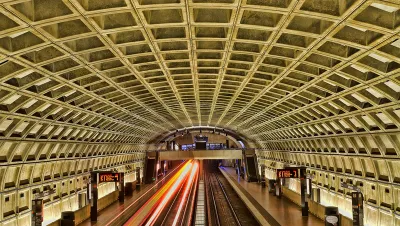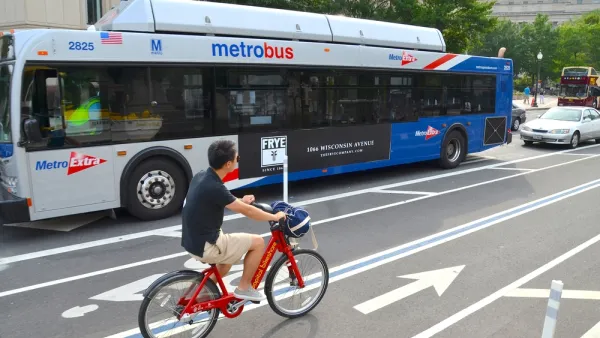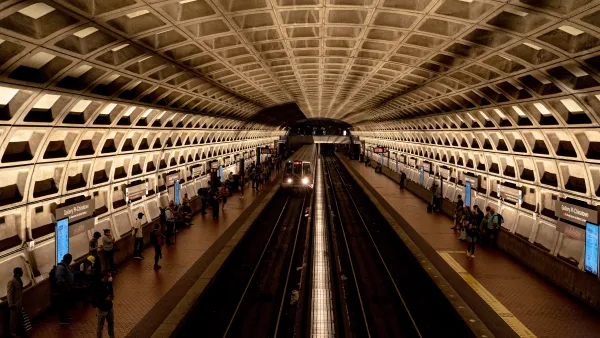While transit ridership is up around the country, the D.C. Metro has experienced the opposite. The agency's planners aren't worried about those numbers, though. They're excited about development that's bringing more residents to transit-served areas.

Factors like telecommuting and ride-sharing services seem to have taken a bite out of transit ridership in the Washington, D.C., region. And managerial troubles at Metro haven't helped. The agency's planners, though, are looking towards a bright long-term future.
They aren't so concerned about today's ridership numbers as they are about the number of people who will live and work within a half-mile of an existing transit stop. That's the commonly accepted radius of a "walk-shed"—the distance that commuters are willing to walk to get to a transit stop. Some estimates show that a full 86 percent of the office space under development in the metro area falls within a walk shed. Meanwhile, 90 percent of office leasing deals that were closed this year were for properties within a walk shed.
Much of this growth will take place in formerly moribund areas on the District's east side, with some stations expected to gain nearly 10,000 daily riders by 2020—for a total of 84,000 added trips per day and $240,000 in added revenue.
FULL STORY: Why — and at what stations — Metro expects ridership to grow

Analysis: Cybertruck Fatality Rate Far Exceeds That of Ford Pinto
The Tesla Cybertruck was recalled seven times last year.

National Parks Layoffs Will Cause Communities to Lose Billions
Thousands of essential park workers were laid off this week, just before the busy spring break season.

Retro-silient?: America’s First “Eco-burb,” The Woodlands Turns 50
A master-planned community north of Houston offers lessons on green infrastructure and resilient design, but falls short of its founder’s lofty affordability and walkability goals.

Test News Post 1
This is a summary

Analysis: Cybertruck Fatality Rate Far Exceeds That of Ford Pinto
The Tesla Cybertruck was recalled seven times last year.

Test News Headline 46
Test for the image on the front page.
Urban Design for Planners 1: Software Tools
This six-course series explores essential urban design concepts using open source software and equips planners with the tools they need to participate fully in the urban design process.
Planning for Universal Design
Learn the tools for implementing Universal Design in planning regulations.
EMC Planning Group, Inc.
Planetizen
Planetizen
Mpact (formerly Rail~Volution)
Great Falls Development Authority, Inc.
HUDs Office of Policy Development and Research
NYU Wagner Graduate School of Public Service




























